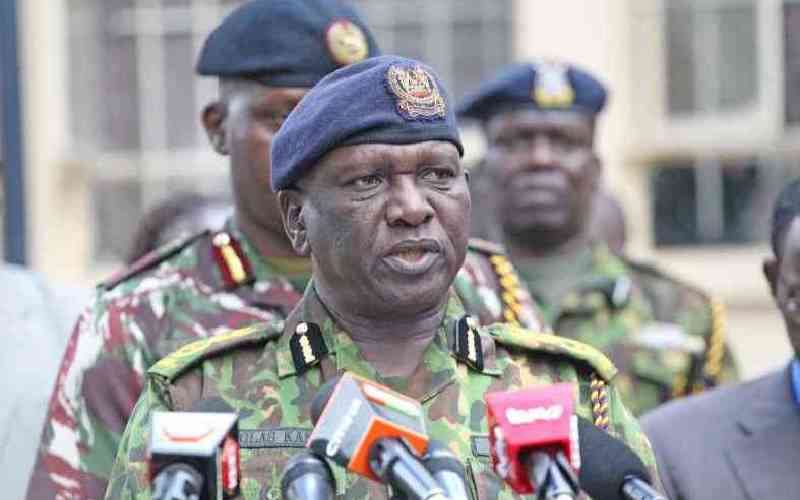The altercation between the National Police Service (NPS) and the National Police Service Commission (NPSC) over the recruitment of 10,000 police officers has exposed costly power struggles at the heart of the security sector.
At a time when Kenya is grappling with a resurgence of illegal groups and fast fast-approaching high-stakes General Election, the wrangling between the police hierarchy and the civilian arm of the commission could not be more ill-timed or more dangerous.
Yesterday’s protracted meeting, called after Justice Hellen Wasilwa suspended the recruitment, was not the first attempt to put out fires that have been raging for years. Only weeks ago, a midnight truce was reached between Inspector General Douglas Kanja’s camp and the Commission led by chairperson Eliud Kinuthia.
That fragile peace has now collapsed under the weight of mutual suspicion and unending court battles. At the centre of the feud is a fundamental question: Who controls the human resource function of the Police Service? The police side insists that recruitment, promotions, and the Sh60 billion payroll should be the IG’s domain.
Follow The Standard
channel
on WhatsApp
The civilian commissioners argue that the Constitution and subsequent statutes place these functions under the NPSC. The National Treasury affirmed that payroll management remains with the NPS. But the larger issue of recruitment is still a battlefield, with courts being dragged into what is essentially a leadership failure.
The result is paralysis. Thousands of young Kenyans, desperate for opportunities, are left in limbo. For many, police recruitment represents not just a job but a lifeline from poverty, a pathway to dignity, and a means to contribute to national service. Each delay denies them hope.
Each court injunction leaves their families disillusioned. And each postponement creates fertile ground for criminal gangs to lure idle youth into their ranks. This is not just about employment. It is about national security. Kenya is facing the re-emergence of outlawed groups that thrive in moments of state weakness and public disenchantment.
Failing to replenish the police service now is akin to leaving the country’s gates open. As history shows, criminal networks exploit such moments to entrench themselves in communities, making them harder to dismantle later.
The stakes are even higher with elections looming. Poll seasons have historically been volatile in Kenya, and a weakened police service will only embolden those bent on violence and disruption.
It is shameful that even presidential interventions have failed to resolve the impasse. The NPS and NPSC must rise above petty turf wars. Their constitutional duty is clear: to serve the people, not themselves. They must urgently end the wrangles and find a framework for collaboration.
Follow The Standard
channel
on WhatsApp
By Editorial
